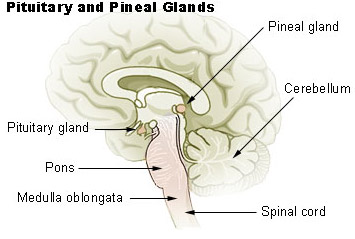The Passions of the Soul Essay - Critical Essays
Critical Evaluation

René Descartes, was born in La Haye en Touraine,
March, 31st,
1596 and died in Stoccolma, February 11th,
1650. He was a French philosopher and mathematician. He was the
founder of modern Philosophy and Maths.
Descartes was a man who made of his life a quest for certainty, a
quest which led him to the discovery of a new approach to knowledge.
This method he summarized in his twenty-one RULES FOR THE
DIRECTION OF THE MIND. In THE PASSIONS OF THE SOUL,
Descartes, late in his life, turned his attention to the human
emotions; this book is the result of his applications of his rational
method to an analysis of the causes, varieties, and significance of
emotions. Descartes wrote this study during the winter of 1645-1646;
it was not published, however, until a short time before his death in
1650. During his lifetime Descartes’ books had only small sales and
were a source of disappointment to their author. But under the
prodding of friends and royal patrons, including Queen Christina of
Sweden and Princess Elizabeth of the Palatine, he finally agreed to
the publication of this, the last book to appear before his death.

Descartes saw mind and body as being completely distinct; he also
saw that sense perception requires an interaction of mind and body.
He came to believe that the emotions, as well as sense perception,
were the result of interaction between the body and the mind. The
causes of the emotions,
or, as he called them, the passions,
were not, he came to believe, solely in the brain but in all parts of
the body, insofar as the various parts of the body serve for the
production of blood
and what he called the animal
spirits. These
animal spirits he believed to be very subtle
portions of the blood, material bodies of extreme minuteness, which
move very quickly through the body and are produced, for the most
part, in the brain. The animal spirits, as well as perceptions, can
cause the actual movements of the body, thought Descartes. The seat
of the soul he located in the pineal gland, between the two
hemispheres of the brain; the spirits move from the pineal gland, he
believed, through the nerves, act upon the animal spirits already in
the body’s system, and thus cause movements in the muscular and
skeletal portions of the body.
The first part of Descartes’
study, consisting of fifty “articles,” or paragraphs, discusses
the physiology of man, explains the seat of the soul, and discusses
the general nature of the passions, or emotions. In this section of
the book Descartes concludes that both desires and emotions
proceed from the soul, noting that while some desires are the result
of the body others are the result of the soul, such as the desire to
love God. In this section, too, Descartes tries to show why he
believes that every soul, despite the degrees of strength in souls,
can exercise absolute control over the emotions of the particular
human being. Such power to control
the individual is, of course, a logical necessity if the individual
is to be held responsible for his thoughts, emotions, and acts.
************************
VISUAL ORGANISER
Because he was a rationalist, Descartes believed that to analyze and to understand the passions is a first step in being able to control them. Therefore, the second part of THE PASSIONS OF THE SOUL is an examination of the emotions. He enumerates and analyzes a long list of passions, but he suggests that there are six basic, or primitive, passions from which the others derive; the six he lists are wonder, love, hatred, desire, joy, and sadness. Other passions, claims Descartes, are species of these six or combinations of them. He suggests that the utility of the passions is that they fortify and perpetuate thoughts in the soul which it ought to preserve, thoughts which might disappear if they were not strengthened by emotion. Two ways exist, however, in which the emotions can be detrimental: one is that thoughts can be fortified more than is necessary or desirable; the other is that thoughts unworthy of retention by the soul are fortified, and so retained, by emotion. For example, maintains Descartes, wonder can be marvelous in inclining the individual to study the sciences.



Nessun commento:
Posta un commento